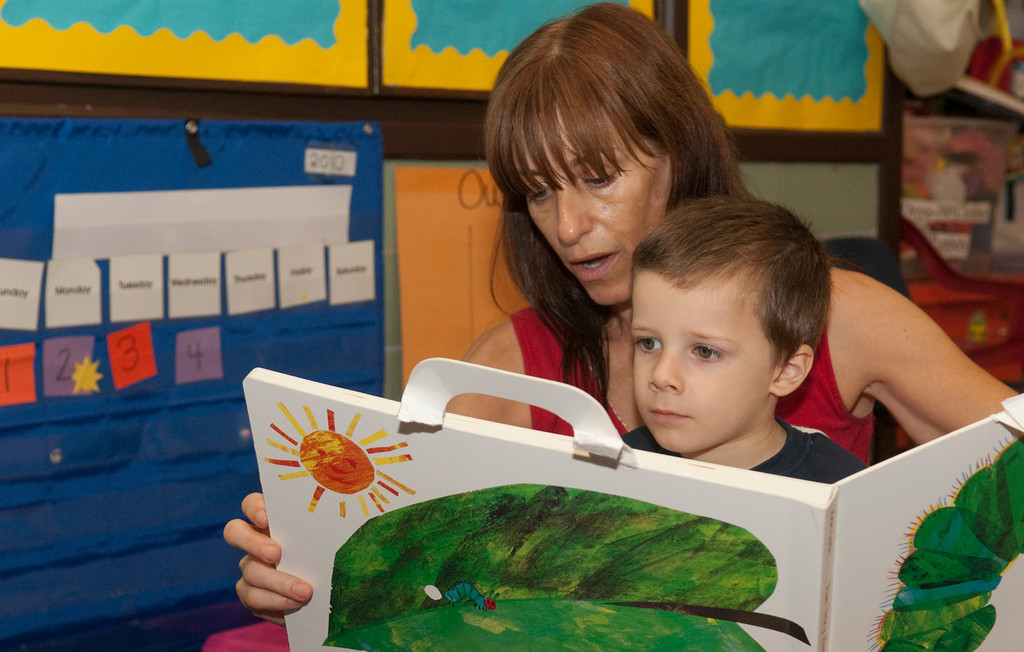Studies have shown for decades that getting children interested in reading at an early age is crucial to their academic development. Those who are not at or near the reading levels of their peers by third grade generally face a much tougher road – not only in school, but in life. But what specific steps can parents and daycare providers take to spark an early interest in children’s reading?
Julia Irwin and Dina Moore, associate professors of psychology, share some ideas in their book, “Preparing Children for Reading Success: Hands-on Activities for Librarians, Educators and Caregivers,” published recently by Rowman and Littlefield Publishers.
“We have a literacy crisis in this country, despite having the research to know what works when it comes to teaching reading,” Irwin says. “It is important to put the theoretical into practice. Kids who grow up in homes in which parents play an active role in fostering a reading-friendly atmosphere, especially in the pre-school years, generally succeed in school and later in life. But those who do not grow up in that kind of environment generally have a much tougher time.”
So, what can help parents make reading a centerpiece in their young children’s lives? The authors give many examples in their book.
“Discussing books together creates a time for your child to share their thoughts, worries and ideas with you, to practice new words that they have learned from the book, and to discuss conflicts and concepts that arise in the book,” Irwin says. “By talking about the perspectives and feelings of favorite characters, children learn to better understand others’ and their own feelings.”
Dealing with emotions, such as fear and sadness, in an appropriate way can be addressed through reading. For example, Irwin points to a book such as “Dog Heaven,” by Cynthia Rylant, as providing a starting point for a conversation after losing a pet.
For a child who has first day of school or daycare jitters, she recommends reading a book such as “Curious George’s First Day of School,” by Margret and H.A. Rey or “The Hello Goodbye Window,” by Norton Juster.
The authors note that another way in which books can be relevant is by planning an activity around a book. For example, parents and their children can read “Gingerbread Man,” and then make gingerbread cookies together. Or, reading “Make Way for Ducklings” can be followed up by a trip to the local park to see ducks.
Irwin points out that the social and emotional development of kids can be influenced by reading. “Kids can learn to take turns and to listen to others through reading,” she says. “That ability to self-regulate is an important lifetime, social skill.”
A celebration of the new book is being held on Nov. 20 at Southern on the Green (900 Chapel St.). The event is co-sponsored by SCSU, Haskins Laboratories and R.J. Julia Booksellers.


